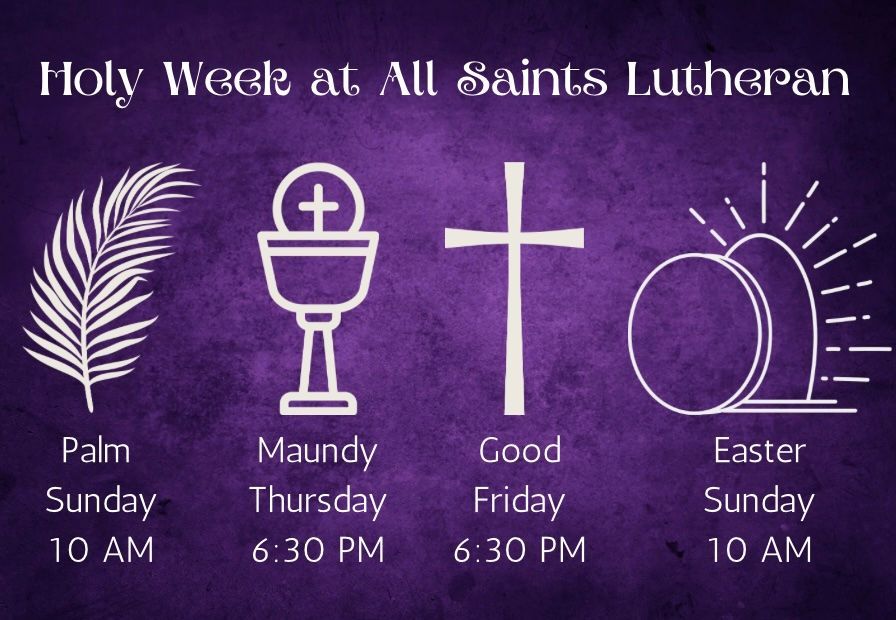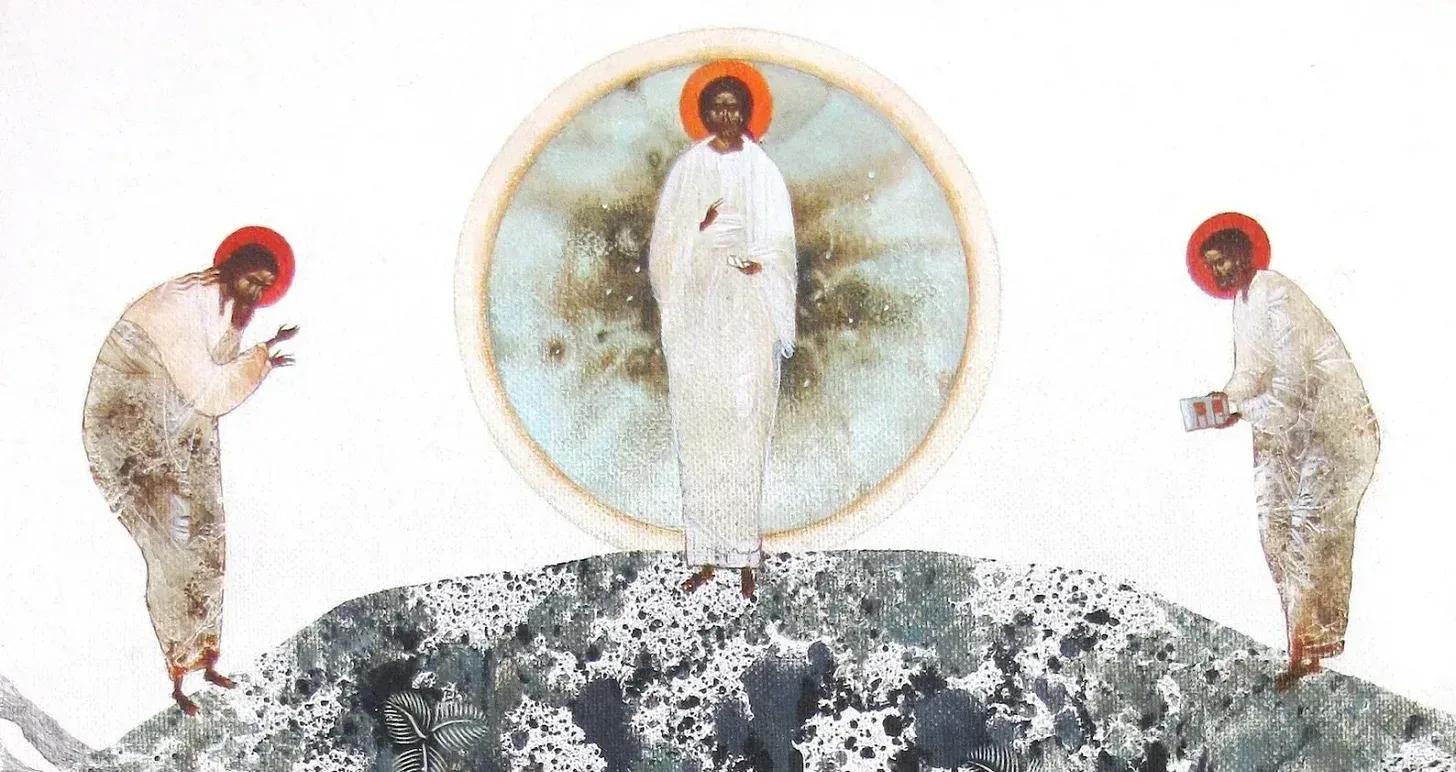Fifth Sunday in Lent, April 6, 2025
The Celtic people of Ireland
have a term
used to describe the moments
or physical spaces
in which a person experiences
an overwhelming sense of transcendence,
of connection to the divine,
to the great beyond.
They call these encounters
“thin places”
because the veil between this world
and the next
has grown so thin as to be,
in that place
and at that moment,
imperceivable.
Particularly in Ireland
there are mountains, coasts,
and old sanctuaries now in ruins
where people have reported feeling God’s presence
in such real and powerful ways
that they forget where they are altogether.
Others describe thin places
that are more local and intimate;
in a time of prayer
or great distress,
in a moment of discernment
or confusion,
the veil thins
and brings an overwhelming sense
of peace and tranquility,
of clarity or purpose.
Perhaps you have experienced
such a thin place—
a location, a state of mind,
a taste or smell,
that ushers you into an intimate encounter
with the Divine,
an encounter that leaves you different
than when you arrived,
and your understanding of the Holy
or the Holy One
will never be the same.
Today we come to the last Sunday of Lent.
This season of contemplation,
curiosity, and confession
has brought us to a thin place in Jesus’ ministry.
After raising Lazarus from the dead,
Jesus and his disciples
are gathered in the home of Mary and Martha
and the now living Lazarus
is at the table with them.
It’s hard to even imagine
the overwhelming sense
of joy and gratitude,
of awe and astonishment
that must have filled the air in that place.
A beloved friend, brother, and follower of Jesus
has just been resurrected from the dead,
and not warm-bodied resuscitation dead,
but stiff and stinking four-days-dead.
This resurrection is not only miraculous,
not only a sign of God’s work
in Jesus’ ministry,
but for Jesus,
it’s personal.
These are his friends,
a sort of chosen family for Jesus
here in Bethany.
Clearly a place where Jesus felt at home.
And among the cross-conversations,
passing food,
laughter, and celebration,
Mary seems to slip away unnoticed.
On her return,
the casual atmosphere quiets
as the sweet smell of perfume
overtakes the scent of fresh bread,
good wine,
and unwashed bodies.
Mary has knelt at the feet of Jesus
who was reclined at the table.
She has opened a jar of pure nard
and she has anointed Jesus’ feet,
wiping up the excess with her hair.
Mary has found her thin place
and she has poured out holy oil
to mark this sacred moment.
Mary makes Jesus the Anointed One—
she marks Jesus as the Christ.
What she bought for his burial
she couldn’t hold.
It was not precious
by comparison to the surpassing worth
of the feet it soothed and salved.
The Greek has a word for this—Kairos.
This word is often translated as “time,”
but that is because we don’t really have a word
for this kind of time.
It is a point in time
when the past, present, and future
meet in a divine and miraculous moment.
This was the moment,
and she had learned her lesson;
and she would rather honor the living
than grieve the dead.
If death meant anything now.
Yet there is one who cannot enter this thin place
with those at the table this night.
Judas cannot move past the tangible things,
the things he controls,
things like money,
things like their public image.
He cannot fathom “wasting”
such a costly commodity
nor can he believe
that Jesus would let something so intimate
happen so openly.
Judas is not worried
about where God is
and what God is doing in this moment,
because he doesn’t count moments.
He counts minutes
because time is money
and he’s afraid they’re running out of both.
There is another Greek word for time—chronos.
Judas is a slave to chronos time,
the kind of time that keeps an eye on the watch,
that calculates what is valuable or invaluable,
what is spent and what is saved,
based on what it has to offer
his position, his pocket, his power.
Judas knows Jesus can’t have much time left.
Judas knows
it would take the average Judean
almost 10 months to earn
what that perfume would cost.
Judas knows what they could get for it
and how much he could pocket
if they did.
A touch lightheaded
and feeling ever poorer
as the scent began to fade,
Judas protests,
“We could have sold that for a small fortune
and given the money to the poor.”
Jesus defends Mary:
“She bought this for my burial.
It is always time
to help the poor.
But you won’t always have this moment.”
I wonder
if we too
aren’t slaves to chronos time,
constantly trying to squeeze
a few extra seconds out of our relentless schedules,
evaluating what gets our attention
based on what it has to offer us in return,
taking for granted
this table we share with the Anointed One,
appalled at the wasteful and undignified
piety of others at the table.
Yet as people of faith,
God is inviting us into kairos time,
God’s time,
counted in moments
and not minutes.
Time that doesn’t ask,
“how can I spend and save my time,”
but instead asks
“how is God at work in this moment,
and how am I called to meet God there?”
This is exactly what Mary is doing in our passage today.
Her relationship with Jesus
is so intimate that she meets him in this moment
this thin place,
this place between death and life,
this place between what has been and what will be,
this place between what God has done
and what God is doing.
And Mary chooses
to be present in this moment
with Jesus,
forgetting what lies behind
and straining toward what lies ahead.
Beloved, we stand on a threshold this day,
Between living our lives to the minute
And living our lives in the moment.
Jesus is inviting us to the thin places
That are our very lives,
To recognize that Jesus is still with us
In the monotony of our ordinary days,
In the sinks full of dishes
Baskets full of laundry
Looming deadlines,
Failing health,
And dwindling bank accounts.
In these moments,
We can live like Judas,
With an eye on the bottom line,
And a hand in the cookie jar,
Looking out for ourselves,
Minding the minutes
Until things are better,
Until things settle down,
Until the congregation is bigger,
Until the market bounces back,
Until the midterms,
Until…
Until we have taken the time for granted
And missed Jesus in the moment.
Or
We can live like Mary,
With our eyes on Jesus.
We can forget the anxiety of the minute
We can embrace God’s abundance now,
We can eulogize the living,
Telling them what they mean to us while we have them
Instead of waiting for their funeral.
We can find Jesus with us
In our homes,
At our tables,
At our desks, computers, workbenches, dashboards.
We can live in the thin places
Between Kairos and Chronos time
Where Jesus comes to meet us.
Places like this table,
this thin place
Where the church on earth
And the host of Heaven
Join in an unending hymn
To praise the Son of the Living God
And meet Christ in the moment.
We can come here
And share in this table
Where the line between bread and body
And wine and blood
Has become so thin
That they have become one.
And having met Jesus here
We can pour out our lives
Like precious oil,
A fragrant offering to Jesus,
To bless the meeting place of heaven and earth
And blur the line
between the minute and the moment.
Amen.










